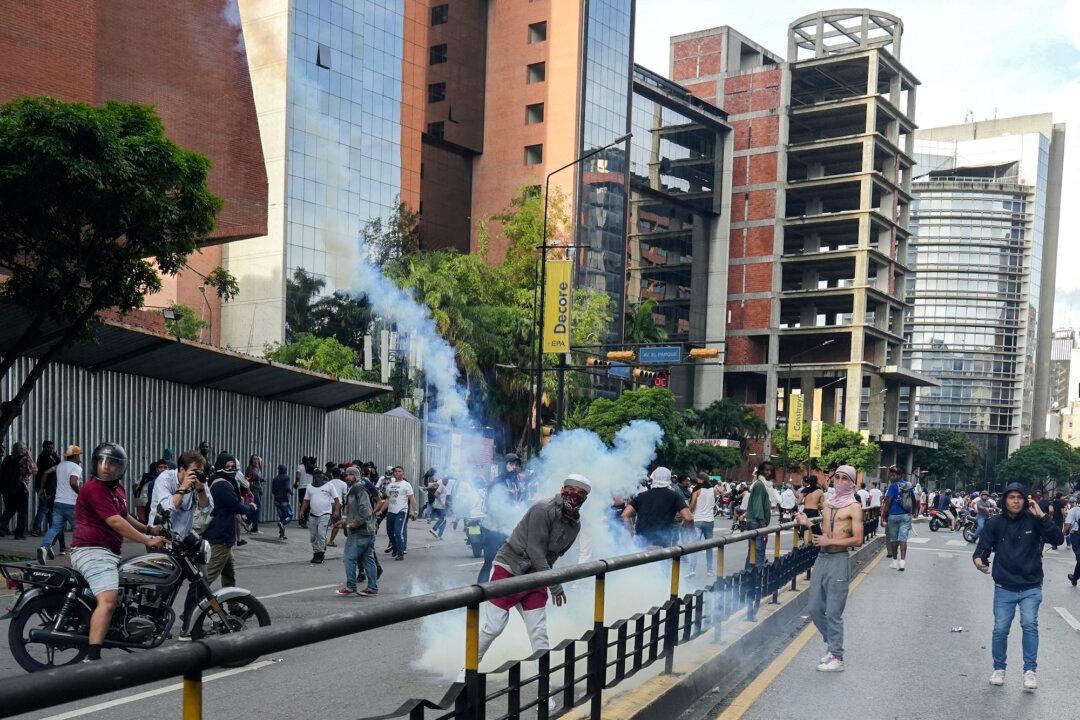Protests erupted in Venezuela on July 29 in the wake of a disputed election result in which both President Nicolas Maduro and his opponent, Edmundo Gonzalez, claimed victory.
The Venezuelan Conflict Observatory, an advocacy group, reported on social media about clashes between some protesters and security forces. The group said that more than 180 protests occurred in 20 of the country’s 23 states.





